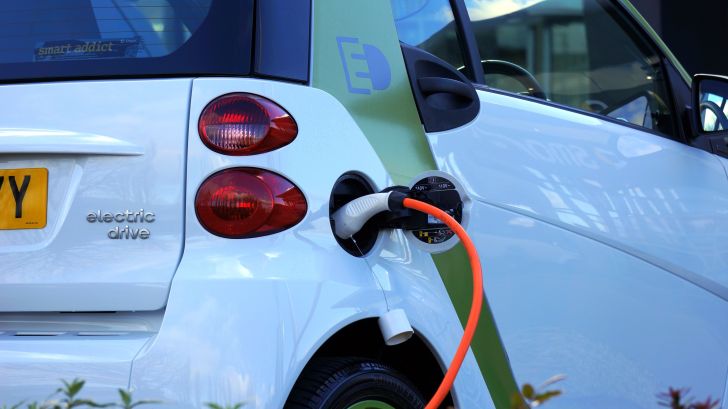What government grants are available for electric cars? The presence of electric vehicles (EVs) in this era is growing rapidly. It becomes one of the fundamental changes in transportation.
The use of EVs is very promising for individuals, communities, businesses, and the whole Nation. All Americans have the opportunity to get benefits from the low operating costs, decreased maintenance needs, and increased performance.
Besides, all communities (such as communities of color, environmental justice communities, and underserved communities) have the right to get equitable access to economic growth and better air quality.
The Nation will get benefit from the adoption of EVs as one crucial element in the strategy of the Federal Government to minimize the emissions from transportation and the investments in quality bicycle, transit, and pedestrian networks that support Americans’ real options in how to travel.
The Importance of EV FOR Rural Communities
America has some rural parts where 20 percent of Americans and about 70% of America’s load miles are set there. Therefore, electric cars can be an impressive alternative to conventional cars.
It is also important to know that rural residents drive more than urban. So, they spend more money on fuel and maintenance. Therefore, the presence of electric cars can help rural residents to decrease the cost and reduce the impact of transportation on the environment.
Additionally, the Federal Government has a goal to make 50% of all new cars sold in the US market in 2030, especially for zero-emission vehicles line. Back in 2021, President Biden approved the Bipartisan Infrastructure Law, or Infrastructure Investment and Jobs Act. It contains about $7.5 billion for funding charging stations for electric vehicles.
As a result, EV charging infrastructure now is eligible for more Federal funding programs and offers to fund other initiatives related to EVs. The funding will support rural communities in the country since it can provide an existing source of capital for infrastructure projects.
What Government Grants for Electric Cars
What government grants are available for electric cars? Funding from the federal for electric vehicle infrastructure is available from different sources. For example, discretionary and formula grant awards, tax incentives, and loan financing programs. Here are the types of federal programs:
Discretionary Grant Funding Programs
The agency will collect all applications. After that, they select the projects based on evaluation criteria, eligibility, and program priorities.
Formula Grant Funding Programs
What government grants are available for electric cars are formula grant funding programs. The funding is divided based on the formulas mentioned in the statute. The recipient of the formula grant programs can be States or transit agencies.
The recipient is responsible for considering the way they use the funding based on the guidelines. Any entities that do not get formula funding, such as non-profits or transportation services can be eligible to get funding from the agencies that receive the initial formula grants.
Loan Financing Programs
The next program for credit assistance is by using Federal funds. The goal is to fasten project delivery especially when direct funding programs are not available yet.
Public credit assistance programs also can attract private and non-Federal co-investment. It can be secured loans, lines of credit, or loan guarantees.
Tax Incentives
Individuals, non-governmental organizations, and private organizations can take benefits from the U.S. tax code. The tax incentives offer exemptions, exclusions, and deductions.
On the other hand, credits, deferrals, and preferential tax rates can increase tax liability or create cash payments. There is the Internal Revenue Service or IRS that will administer those policies.
What Government Grants are Available for Electric Cars
Since the sales of electric cars keep surging, there are many new and prospective buyers have “what government grants are available for electric cars?”. Also, you may want to know about the qualification to get a federal tax credit on EVs.
Besides, the government has set new terms and has implemented the terms since January 2023. It is because the government has limited the number of electric vehicles that are eligible based on several factors related to local US manufacturing.
The last, you may not know that there are some potential savings available to help you. Happily, we have compiled everything you must know about what government grants are available for electric cars, especially based on tax credits for new or existing EVs.
The purpose of the tax credits can help you to get the highest value on the carbon-awareness investment. Since you support the government by implementing “go green”, you deserve this benefit.
Government Electric Car Scheme
According to the IRS, it is possible if you can get a credit for up to $7,500 based on the Internal Revenue Code Section 30D when you want to purchase a new or qualified EV or electric car. The government has The Inflation Reduction Act of 2022 and then changed the regulation for this credit for cars bought from 2023 to 2032. (https://www.irs.gov/credits-deductions/credits-for-new-clean-vehicles-purchased-in-2023-or-after)
It does not mean that you can go out and then buy a new EV and expect the government to cut off your taxes. The fact is the amount you qualify for depends on the income tax and other requirements about the EV you buy, including where it is manufactured.
Federal Tax Credit
People asked the same question that is: “what government grants are available for electric cars”. Everything started when President Biden had his office. The White House has released two bills allocated for EV adoption. One bill is for heavy expansion of EV charging infrastructure.
According to rumors, the federal tax credit would be higher, which reached $10,000 and many said it will be reformed. The second bill was revealed as Biden’s “Build Back Better Act” and offered an increase in the federal tax credit, but it did not pass the Senate at the end of 2021.
The redesigned tax credit then went to federal purgatory until the end of July 2022. At that time, the US Senate brought the case to vote on the electric vehicle tax credit after Senator Joe Manchin finally accepted to add investments to the force of climate change.
Back in August 2022, the Senate approved and a week later, President Biden signed it. The revised “Clean Vehicle Credit” which is under the Inflation Reduction Act is also to extend the length of the EV tax benefits.
It is important to figure out the words that the government uses in front of the $7,500 credit. The government use “may” and “up to” for a federal tax credit for your electric cars. You may think that the credit is a simple flat rate, but it is not.
For instance, if you bought a Ford F-150 Lighting and you owed $3,500 this year in income tax, it is the federal tax credit you would get. If you owed $10,000 in federal income tax, it is possible to get the full $7,500 credit.
You should also know that the unused portion of $7,500 is not a refund and not a credit for your tax for the next year.
New Federal Tax Credits for EV
So it is clear that federal tax credit is one of the answers about what government grants are available for electric cars. Here are some important things you should know about the new regulations of federal tax credits:
- Federal tax credit for electric vehicles will be the same, that is at $7,500. The government extended the timeline to qualify, which is from January 2023 to December 2032.
- Automakers have a tax credit cap once they hit 200,000 EVs sold is removed. Thus, GM, Tesla, and Toyota are acceptable.
- The words in the bill show that the tax credit can be used at the point of sale, while on taxes late in the fiscal year. In another word, American residents can get credit up front at the dealer in 2024.
- If you want to get the full tax credit, make sure that the electric vehicle you want to buy is assembled in North America.
- The eligible EVs must have a battery size minimum of 7 kWh and the gross vehicle weight should be less than 14,000 pounds.
- Any used Evs below $25,000 is eligible to get a new federal tax credit for about $4,000. However, there are some requirements including a lower income per year.
To get more information about the qualification of EV for the tax credit, check: https://electrek.co/2023/02/03/which-electric-vehicles-still-qualify-for-us-federal-tax-credit/.
Summary
So, the main reason why you are here is that you want to know what government grants are available for electric cars. If you scrolled through the explanations above, you may easily know that there are some major updates about federal tax credits to EVs based on the Inflation Reduction Act.
After IRS is getting revised, the US Department of Treasury delayed the battery guidance about what EV manufacturers to build in the US market for their cars to qualify. Even though the department offers a deadline at the end of 2022 to deliver this post, recently it needs more time and it can be until March, next year, 2023.
There are some EVs that can qualify to get the full $7,500 credit at the beginning of 2023. For example, Cadillac Lyriq, Chevrolet Bolt EUV, Ford F-150 Lighting, and many more.
Not only the federal credit that is available for EV owners, but there are also several clean transportation regulations, laws, and funding options available in certain states. For instance, if you live in the State of California, EV drivers can get a $2,000-$4,500 rebate under the Clean Vehicle Assistance Program (https://cleanvehiclegrants.org/). The grants and the rebate amounts are based on income. The incentives can be different, based on which state you live in.
Sources:
- Overview of EV Federal Funding and Financing Programs
- Electric Vehicles & Rural Transportation
- Here’s every electric vehicle that qualifies for the current US federal tax credit




